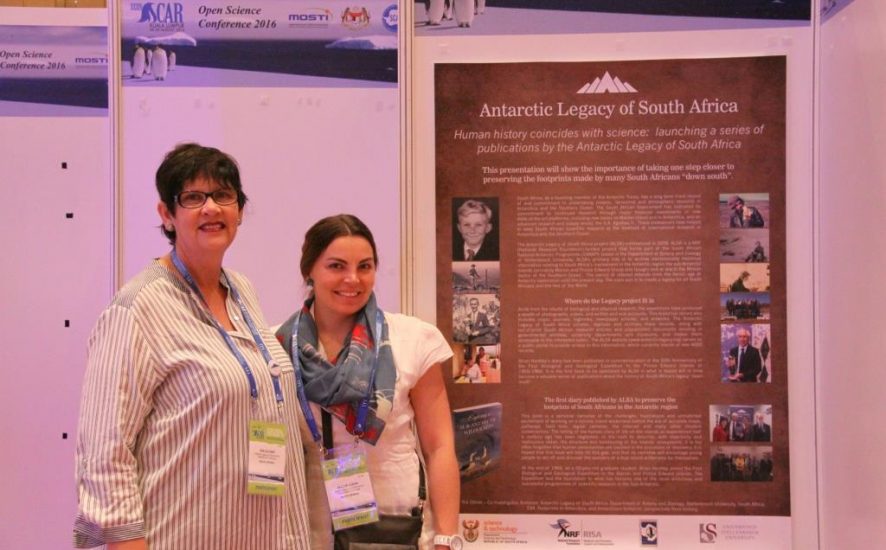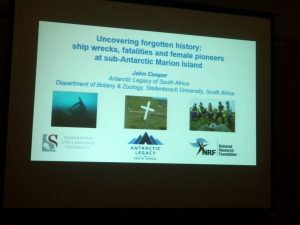The Antarctic Legacy of South Africa had a successful attendance at the Scientific Committee on Antarctic Research (SCAR) Open Science Conference in Kuala Lumpur, Malaysia last week. ALSA was represented at the conference by Principal Investigator John Cooper, Project Manager and Archivist Ria Olivier and Anché Louw, Science Communicator.
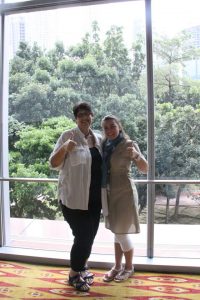
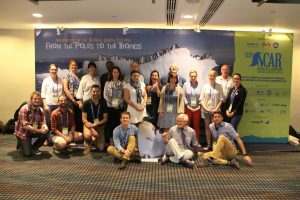
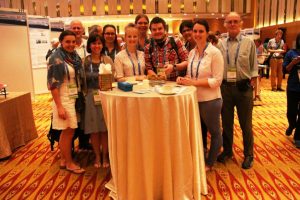
In total ALSA presented four oral talks and one poster in Kuala Lumpur. First up on Day One was Ria who gave a paper entitled “How does the SCAR policy influence open access in the curation and archiving of personal data?” in a session “Data access and sharing for cutting edge science”. Ria’s first paper was followed by Anché who delivered her paper in a session on Antarctic education, outreach and training with the title “Path walked by Antarctic Legacy of South Africa to create awareness of Antarctica amongst all cultures of South Africa”.
Ria Olivier was up again on the Thursday, speaking on how “Information science can create a platform to link disciplines in a global earth system” in a session on the role of humanities and social sciences in Antarctic studies. On the last day ALSA rounded off its oral presentations with a talk by John Cooper entitled ” “Uncovering forgotten history: ship wrecks, fatalities and female pioneers at sub-Antarctic Marion Island” in a session entitled “Footprints in Antarctica, and Antarctica’s footprint: perspectives from history” (click here).
In addition to the above talks, ALSA presented a poster “Human history coincides with science: launching a series of publications by the Antarctic Legacy of South Africa”. The poster highlighted ALSA’s first publication, Brian Huntley’s 1965/66 Marion island diary (click here). ALSA went to Kuala Lumpur with a number of copies of Brian’s book, most of which were sold to conference attendees.
As well as attending the five days of science meetings, Ria Olivier also attended and contributed to two other meetings. Prior to the conference she attended a two-day annual meeting of SCAR’s Standing Committee on Data Management (SCADM). The day after the conference she attended an all-day workshop run by the SCAR History Expert Group.
ALSA made a number of useful contacts at the meeting, liaised with all the other South African scientists present, and has taken home new ideas and renewed enthusiasm to continue its work.
Feature photograph: Ria Olivier and Anché Louw stand by ALSA’s poster.
John Cooper, Antarctic Legacy of South Africa, Department of Botany and Zoology, Stellenbosch University, South Africa, 31 August 2016

